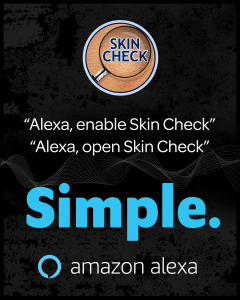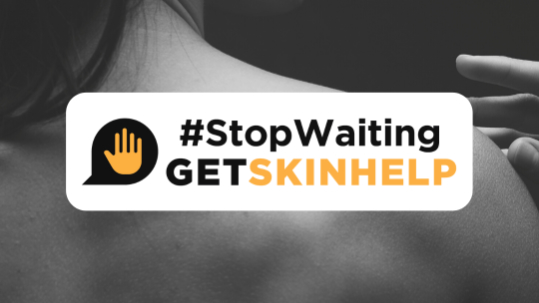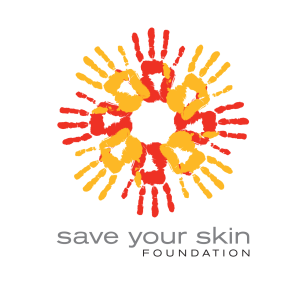Perform a monthly self-examination, or ‘Skin Check’
Checking your skin regularly is one of the easiest things you can do for your health. A skin check is a good way to detect early skin changes that may mean melanoma or non-melanoma skin cancer.
You should perform a skin exam on yourself once a month. Additionally, it is a good idea to have your skin examined by a health care professional about once a year. For information on physical exams for skin cancer screening and how to prepare for them, click here.
When performing your monthly skin exam, look for any abnormal skin growth or any change in the colour, shape, size, or appearance of a skin growth. Check for any area of injured skin (lesion) that does not heal. Have your spouse or someone such as a close friend help you monitor your skin, especially places that are hard to see such as your scalp and back.

A careful skin check may identify suspicious growths that may be cancer or growths that may develop into skin cancer (precancers). Adults should examine their skin regularly. Skin cancer often appears on the torso of men and on the legs of women.
The Global Coalition for Melanoma Patient Advocacy has created a free voice-activated app available on both Amazon’s Alexa and the Google Assistant platforms. The app guides people through what to look for, and the seven steps for conducting a full-body skin exam.
The assistant finishes by offering to set a recurring monthly reminder for the exam.
Once enabled, users can simply ask Alexa or Google: “Open Skin Check”
For more information, you can also CLICK HERE to view an instructional skin check video created by our friends at the Global Melanoma Coalition
If you find a spot you’re not sure about and don’t have a Dermatologist already, check out the GetSkinHelp mobile app:
The GetSkinHelp mobile app allows individuals to access the SkinAI™ technology – an embedded artificial intelligence that allows people to quickly analyze for a selection of skin diseases, including skin cancers – and schedule video appointments with a licensed Canadian doctor who can help determine next steps. From there, the doctor might suggest an in-person appointment or simply write a prescription, which will be sent to the patient’s home or pharmacy. What is most important is that the app gets a person in front of a doctor faster than traditional means.
Early detection is key, and can make all the difference in the case of any melanoma OR non-melanoma skin cancer diagnosis. Click on the images below to view and download these resources, and click to learn more about preventative measures you can take to protect your skin here.
Listed above are a few sources of information and support you might find useful. These groups are not necessarily connected to Save Your Skin Foundation. We are providing the links as useful sources of information but do not monitor content for accuracy and quality.
NOTE: The information on the Save Your Skin website is not intended to replace the medical advice of a doctor or healthcare provider. While we make every effort to ensure that the information on our site is as current as possible, please note that information and statistics are subject to change as new research and studies are published.
Making awareness and education available is crucial. Since 2006, the Foundation has worked to raise awareness of melanoma and non-melanoma skin cancers focusing on education, prevention and the need for improved patient care.







